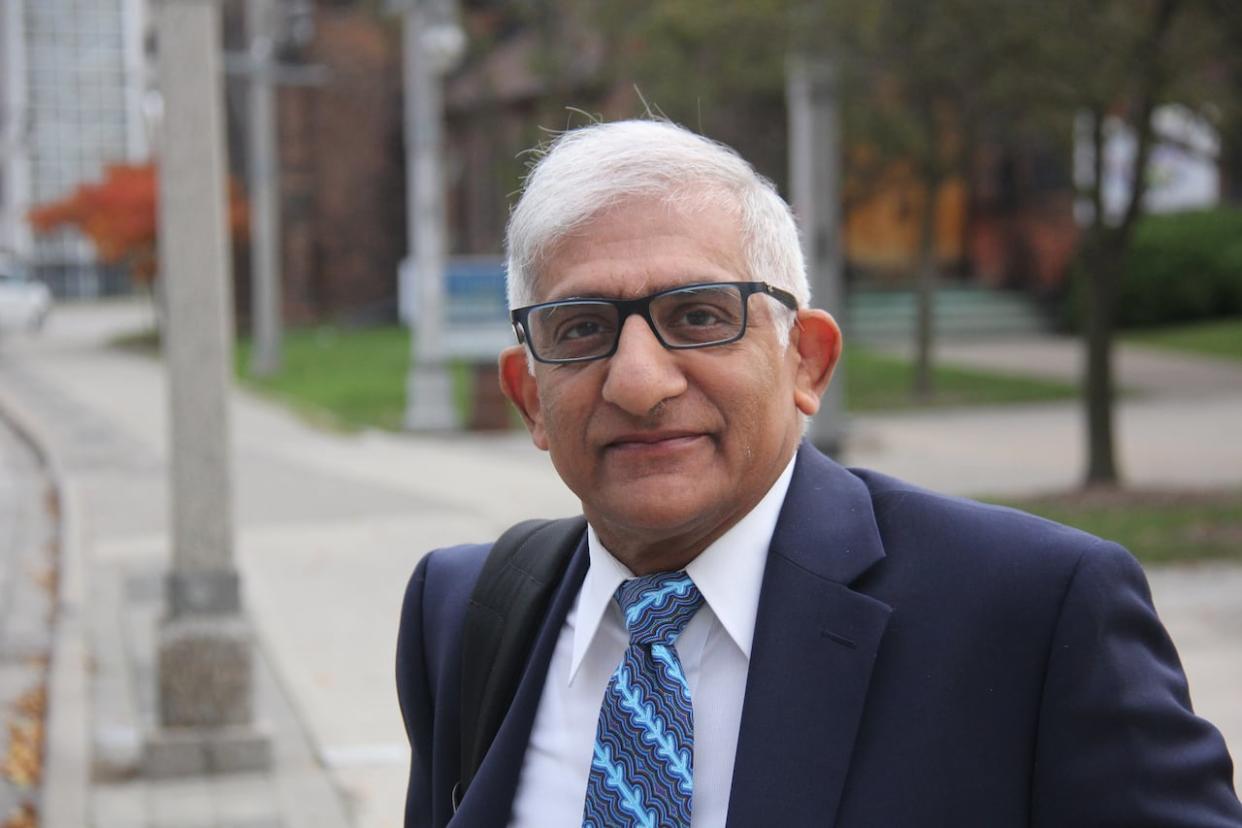Juror dismissed at Nathaniel Veltman murder trial due to COVID-19 as psychiatrist continues testimony

Warning: This story contains distressing details.
The weeks-long trial for Nathaniel Veltman lost a juror on Monday, but a psychiatrist testifying for the defence continued giving evidence about the state of mind of the accused killer of a Muslim family in London, Ont, on June 6, 2021.
The juror was not experiencing "significant symptoms," but regional senior Judge Renee Pomerance told the jury in Ontario Superior Court in Windsor that she would make masks available for them, as well as arrange for the jury box and the deliberation room to be deep cleaned. The juror who tested positive wore a mask for much of the last week.
That means the trial, now in its eighth week of hearing evidence, will continue with 13 jurors. Fourteen jurors were chosen because of the complexity and length of the trial and possibility not all would be able to continue for the duration.
The accused has pleaded not guilty to four counts of first-degree murder, one count of attempted murder and associated terror counts in the attack on the Afzaal family. Prosecutors allege he drove his pickup truck into the family of five because he was motivated by far-right ideology and anti-Muslim hate. Veltman has testified he consumed hours of far-right material in the months prior to the attack.
Although much of Monday was spent in legal arguments outside the presence of the jury and cannot be reported because of a publication ban, the jury did hear more testimony from Dr. Julian Gojer, a psychiatrist who has examined the accused multiple times in the last two years, most recently in September.
"His diagnoses and personality are like a rope, the strands all wound together," Gojer said. "His personality, his self as a whole, is dysfunctional, as is how he relates to himself and others."
Magic mushrooms' role questioned
Gojer has said the accused has a complex web of autism spectrum disorder, obsessive compulsive disorder, a personality disorder and complex trauma, as well as underlying depression and anxiety. He also took magic mushrooms the day before the attack on the Afzaals.
They were out for an evening walk in suburban London when they were struck by a vehicle. Yumnah Afzaal, 15, her parents Madiha Salman, 44, and Salman Afzaal, 46, and family matriarch Talat Afzaal, 74, were killed. A nine-year-old boy was seriously injured but survived.
In two police interviews in the hours after four family members were killed — videos of the interviews were played for the jury earlier in the trial — the accused told a detective he targeted them because he had become fixated on far-right material online and he characterized his actions as "terrorism."
Testifying in his own defence, the accused said that was something he said to justify his actions to himself and the detective, and he was in a "dream-like" state after coming off the mushrooms.
Defence lawyer Christopher Hicks suggested the accused was in a "drug-induced hypomanic state," or a "run-away freight train" that was headed for an explosion after the crash, which Gojer agreed with, but said that there are other explanations for his post-attack actions, including appearing giddy and talkative.

The accused, shown in this court sketch Oct. 12 with Ontario Superior Court Justice Renee Pomerance on the right, has been charged with four counts of murder, one count of attempted murder and associated terror charges. (Pam Davies/CBC)
"Why did he present that way? I am trying to put forward a series of explanations for the behaviour," Gojer said. "Could it be that the mushrooms left him with an elevated mood? There could be other aspects. It could be that he just completed what he thought of in the weeks and months before, and is elated that it's done."
Gojer has said it's possible the mushrooms allowed him to suppress his urges to hurt Muslims, but coming off the drug made his anxiety and obsessive symptoms worse, leaving him unable to resist the urge to drive at the family.
The doctor's testimony is expected to continue Tuesday.


